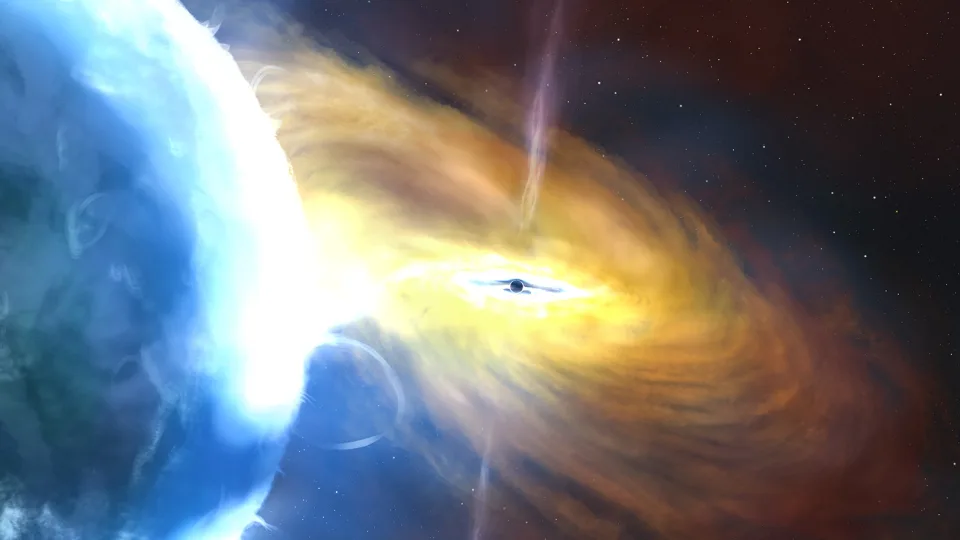
Astronomers have spotted the largest cosmic explosion ever witnessed. The explosion, called AT2021lwx, is more than 10 times brighter than any known exploding star, or supernova. It occurred nearly 8 billion light-years away from Earth when the universe was about 6 billion years old.
The explosion was first detected in 2020 by the Zwicky Transient Facility in California. It has been getting brighter ever since, and it is now one of the brightest objects in the universe.
The cause of the explosion is still unknown, but one possibility is that it was caused by a supermassive black hole swallowing a giant cloud of gas. As the black hole swallowed the gas, it released a huge amount of energy, which caused the explosion.
Another possibility is that the explosion was caused by a collision between two neutron stars. Neutron stars are incredibly dense stars that are left over after a supernova. If two neutron stars were to collide, it would release a huge amount of energy, which could cause an explosion.
Whatever the cause, AT2021lwx is an incredibly powerful explosion. It is the largest cosmic explosion ever witnessed, and it is helping astronomers to learn more about the universe.
Here are some additional details about the explosion:
- It is located about 8 billion light-years away from Earth.
- It is more than 10 times brighter than any known supernova.
- It has been getting brighter ever since it was first detected in 2020.
- The cause of the explosion is still unknown, but one possibility is that it was caused by a supermassive black hole swallowing a giant cloud of gas.
- Another possibility is that the explosion was caused by a collision between two neutron stars.
- AT2021lwx is an incredibly powerful explosion, and it is helping astronomers to learn more about the universe.
